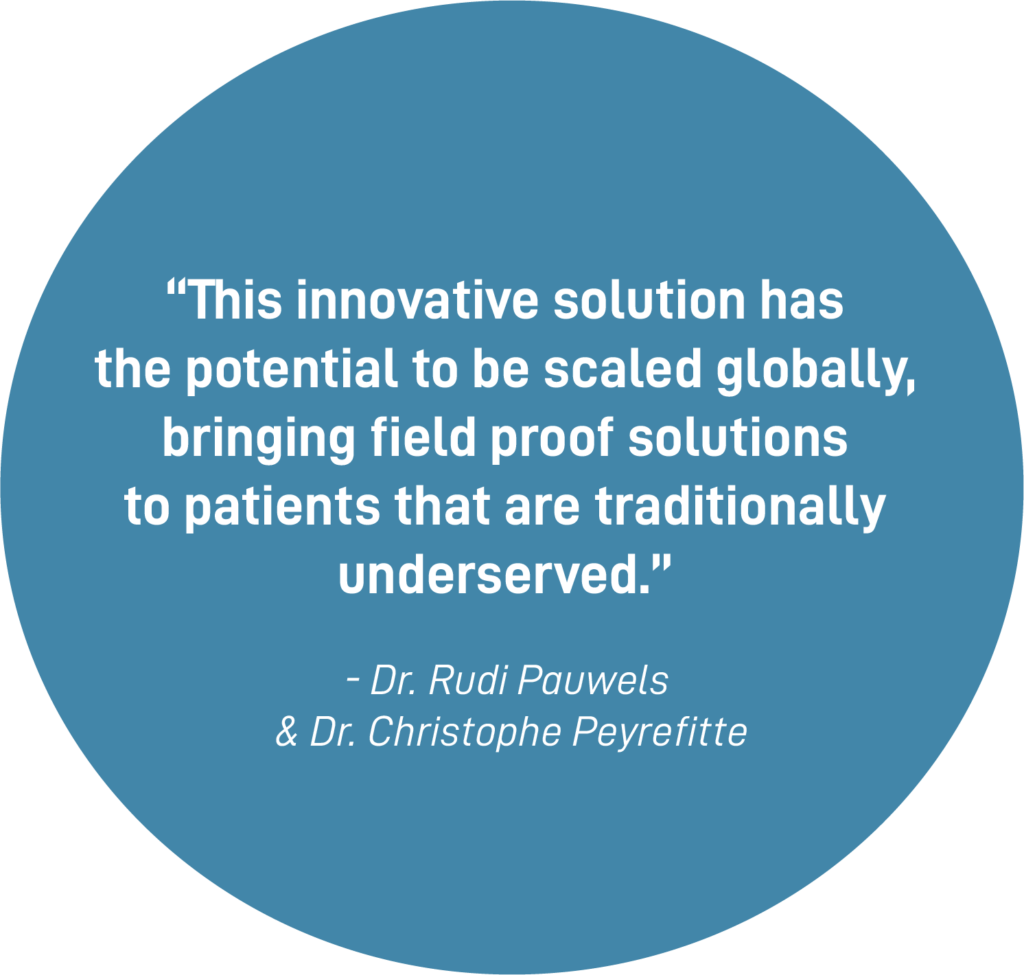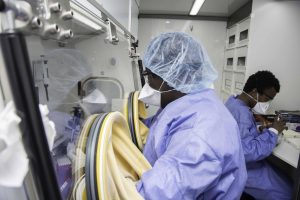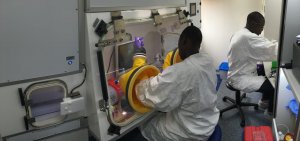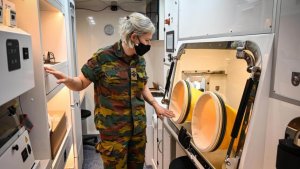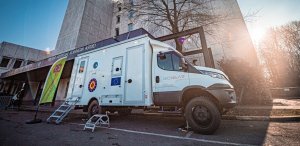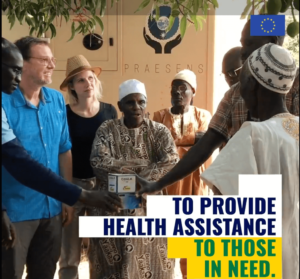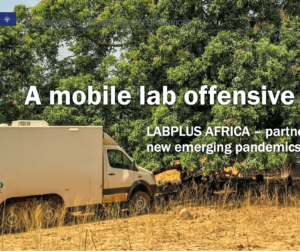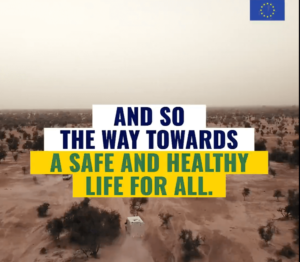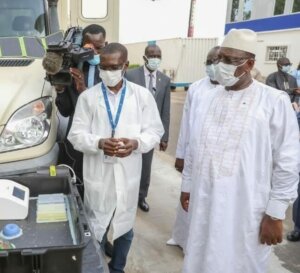Partnering up with the EU to tackle the effects of the COVID-19 crisis in Africa.
From set up in Senegal to scale up across Africa.
Partnering up with the EU to tackle the effects of the COVID-19 crisis in Africa.
From set up in Senegal to scale up across Africa.
“Early detection and response are key to prevent the next pandemic.”
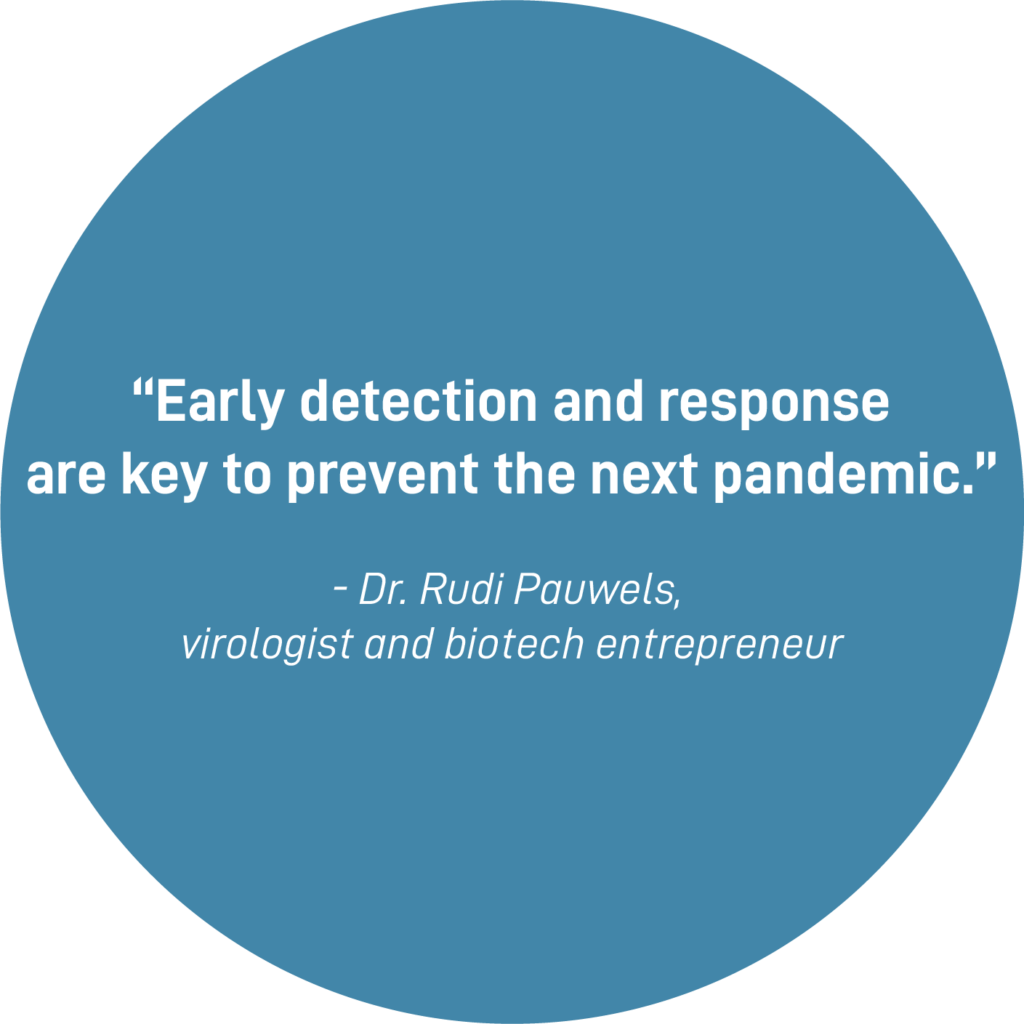
Build and deploy a fleet of five BIONEARS to detect, respond, control and prevent epidemics in Africa, in particular in remote and hard-to-reach areas. By providing a wide range of diagnostic testing and health services in closer proximity of the patient, we will support and reinforce the local healthcare systems.
The increasing number of large-scale epidemics pose a health, social, and economic threat for our societies.
COVID-19 has spread rapidly around the world, affecting every community directly or indirectly. Stringent measures have been put in place by all countries to slow the spread of the disease, including surveillance measures to enable rapid detection, isolation, testing and management of suspected cases.
Developing countries are unable to offer a proper defense because of the weak and undersupplied health systems. Africa faces the challenge of low density of health professionals and healthcare infrastructure. This causes large distances between patients and services, thus bringing about a breakdown in patient care pathways.
COVID-19 and prior catastrophic disease outbreaks urged us to reinforce capacities and develop infrastructure, in a local and decentralized approach.
Together with the EU (under the leadership of the Foreign Policy Instrument (FPI) and the EU CBRN CoE), we introduce the LABPLUS AFRICA offensive (project 85) to tackle the effects of the COVID-19 crisis.
In this project we use innovative approaches and technologies to empower African countries during the pandemic and beyond. It will create local capacity to address the unmet need of quick and accessible diagnostics and healthcare services.
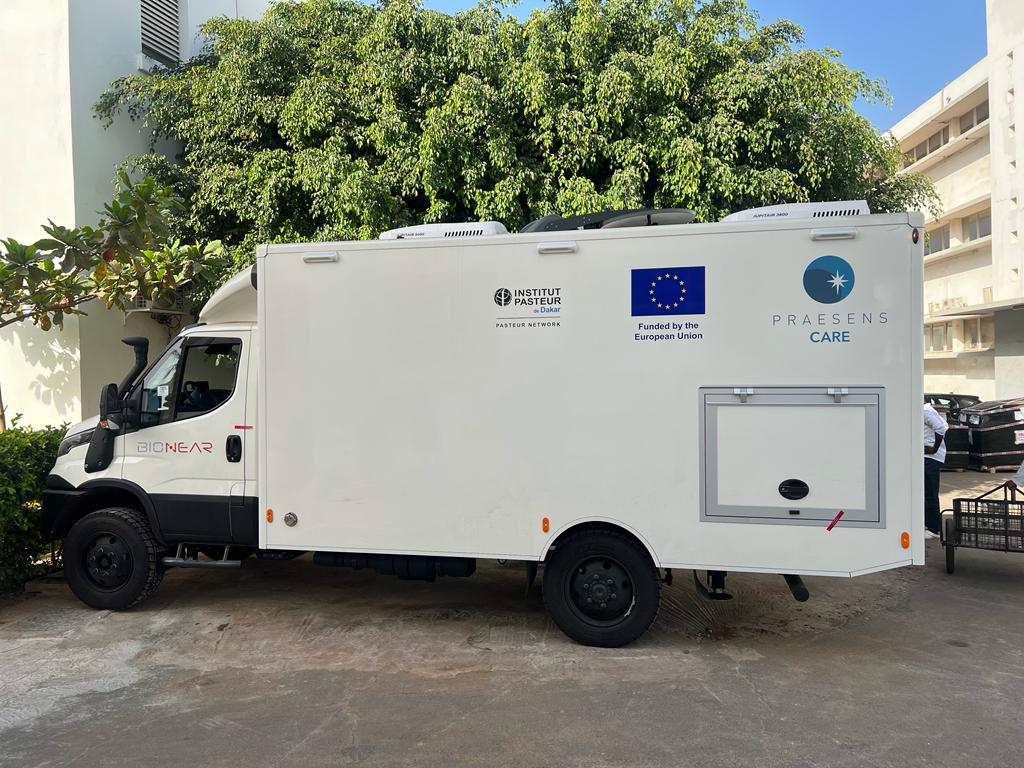
The BIONEAR is an adequate, fit-for-purpose vehicle that can offer a wide-range of healthcare services across the patient journey. It is designed to reach the most remote regions with limited healthcare infrastructure.
Our fleet will be embedded within the current local healthcare system, complementing the already existing capacities.






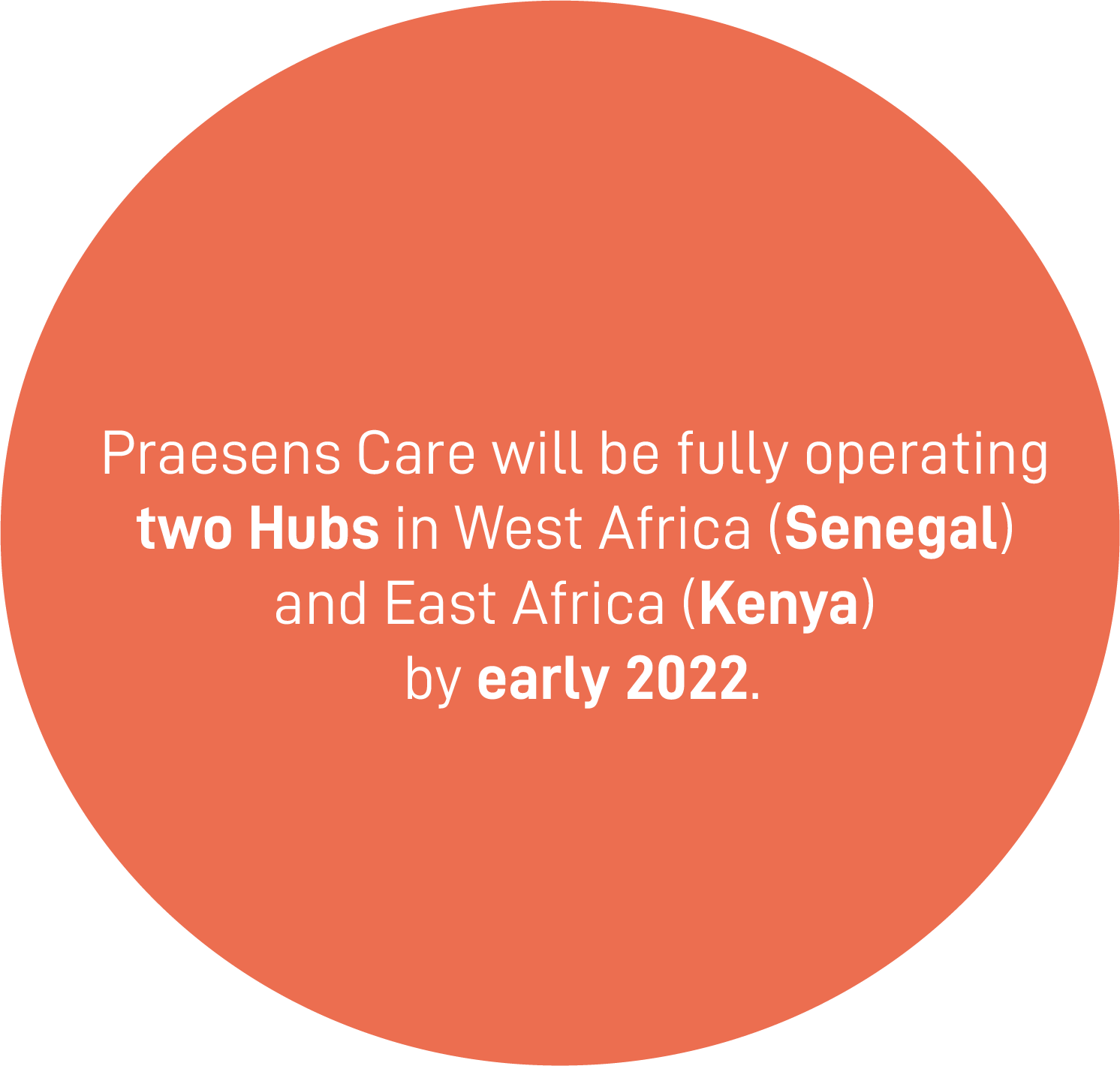
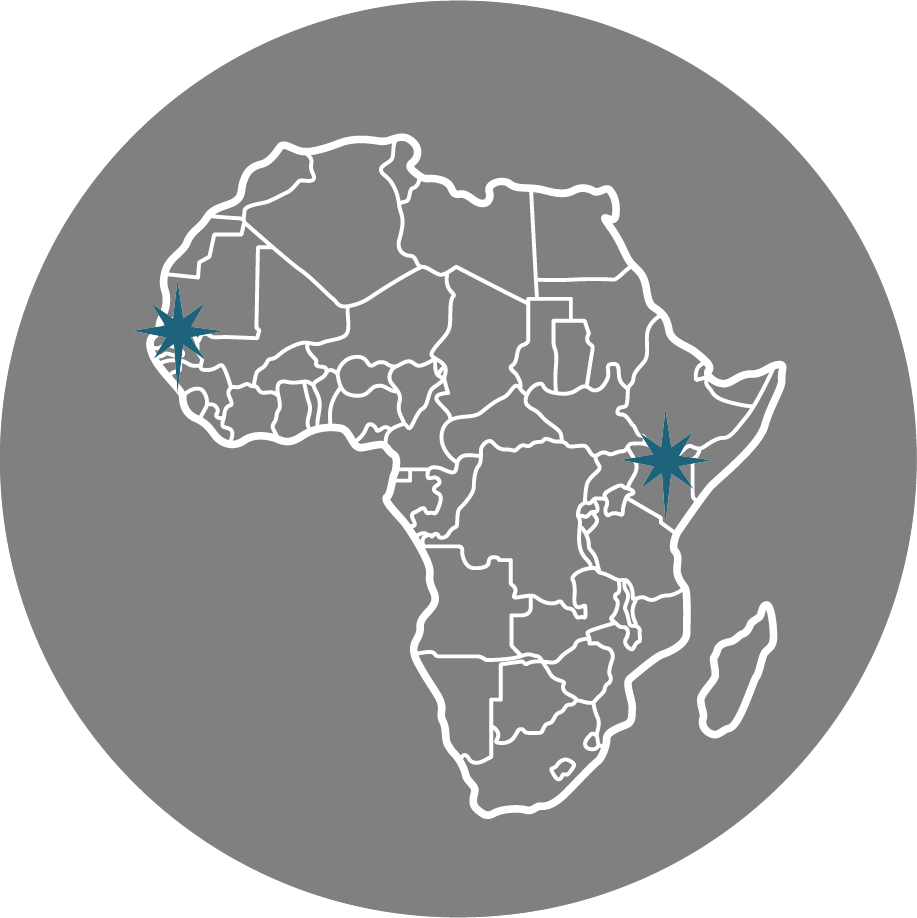
To ensure year-round operations, the BIONEARS will be operated from a regional hub on the ground. It provides a complete package of adequate training of African teams to:
These local hubs make sure that we reinforce the African preparedness and response to future outbreaks of infectious diseases. Together with the BIONEARS, they contribute to long-standing capacity-building efforts.
Activities will be centered around COVID-19, routine diagnostics and disease surveillance, while allowing sufficient flexibility. This enables us to provide rapid response capacities and further adapt to the local health landscape.
To spread the reach of COVID-19 testing in Africa, the continent needs to embrace innovation and allow for new, high quality, affordable and rapid testing methods. In this regard, decentralized testing is a new direction Africa is willing to take.
Point-of-care technologies allow for diagnostic tests to reach a larger part of the population. The approach is relatively cheaper and generates rapid impact. Diagnosis and reporting of more infected cases ultimately allows for the extraction of greater COVID-19 data. Surveillance is also necessary to monitor the long-term trends of COVID-19 transmission and the changes in the virus.
